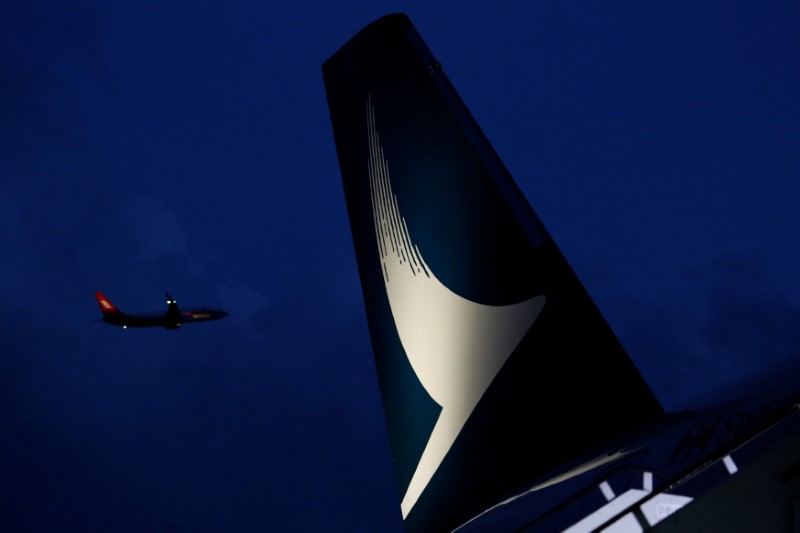This post was originally published on this site
https://i-invdn-com.akamaized.net/news/LYNXMPEDA5034_M.jpg
Investing.com – Hong Kong-based Cathay Pacific Airways (HK:0293) said on Wednesday that it would axe up to 8,500 positions and cease operations of its sister airline Cathay Dragon with immediate effect, as the ongoing COVID-19 pandemic continues to impact demand.
Cathay Pacific’s Hong Kong shares were up 4.02% at HK$5.95 ($0.77) by 1: 02 AM ET (5:02 AM GMT), after seeing an almost 7% increase earlier in the day on the back of the news.
A restructuring program set to cost HK$2.2. billion ($283.86 million) will see the airline seek amendments in conditions in its contracts with pilots and other cabin crew, a stock exchange filing said.
The 8,500 positions, or 24% of Cathay Pacific’s normal headcount, includes 5,900 staff losing their jobs worldwide, of which 5,300 are jobs in Hong Kong, and 2,600 unfilled roles.
“The global pandemic continues to have a devastating impact on aviation and the hard truth is we must fundamentally restructure the group to survive, “Cathay Pacific Chief Executive Officer Augustus Tang.
“This is a heart-wrenching decision to have to make, for which I am truly sorry,” Tang added.
In its decision to end Cathay Dragon, formerly known as Dragonair, Cathay Pacific emulates Singapore Airline’s pre COVID-19 move to fold its own regional brand SilkAir into its main brand. Cathay Dragon had also seen falling demand in its China routes even before COVID-19 hit, with 2019’s protests in Hong Kong in 2019 deterring travellers from China.
Cathay Pacific said that it will seek regulatory approval to fold most of Cathay Dragon’s routes to be absorbed by itself and low-cost carrier arm HK Express.
“Now that Cathay has decided on staff count and the elimination of the Dragon brand it knows the size of the airline and the structure going forward and can complete its new fleet and network plan,” independent aviation analyst Brendan Sobie to Reuters.
Cathay Pacific saw a 98.1% fall in passenger numbers year-on-year in September. However, cargo carriages declined by a less steep 36.6% in the same month.


